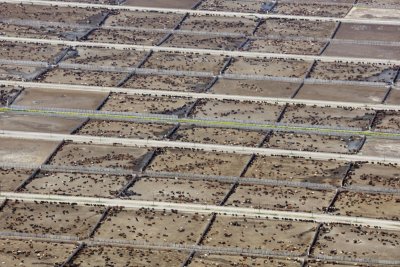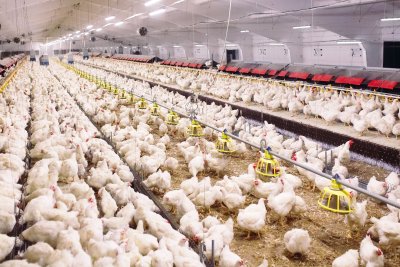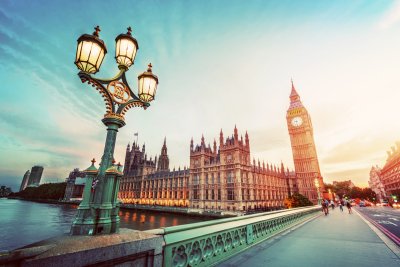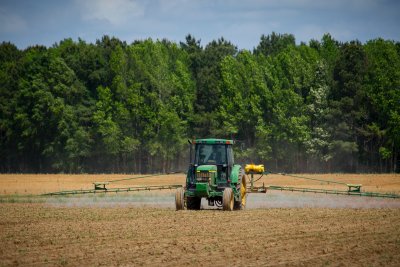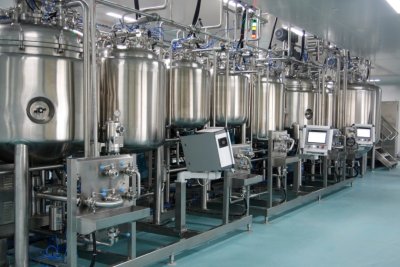News • Good Food Trade Campaign
The Great Repeal Bill is already as full of holes as a colander
Kath Dalmeny of Sustain shares insights on the Great Repeal Bill and what we must do together as an alliance to protect existing standards for food, farming and fishing.

Like many others in our movement, I have spent recent months in a large number of Brexit-related meetings or discussions with a very wide range of organisations – third-sector groups, civil servants, regulators and representatives of the food and farming industry, large and small.
I want to use this article to share insights on the Great Repeal Bill with Sustain’s membership. We know that there are profound consequences for so much of what we have all worked for together over the past 20-plus years. We will need to work together to champion high standards for a post-Brexit future – and the legislative framework and regulatory culture that will support this for generations to come. This was the subject of a Sustain alliance meeting in February called Time for an Act?
However, our first task must be to ensure that during the process of the Great Repeal Bill and dismantlement of our relationship with the EU, important principles and standards already achieved are retained or ‘banked’; that any future changes are made only with proper democratic scrutiny and accountability; and that the best possible degree of food, farming and fishing stability is secured through the rocky Brexit process.
The food industry faces shocks and uncertainties
We will have many allies in doing so. Several very significant UK food industry bodies – including those representing thousands of SMEs – have already said that they would like the regulatory framework to stay as it is, at least in the medium term. Their businesses have been built to optimise for a European regulatory framework, in whose creation the UK has been an active participant. Among the industry bodies Sustain has talked to, phrases such as “uncertainty”, “we’re already pared to the bone following the last recession”, “margins are very low, we can’t absorb shocks”, “we don’t have the resources or information to plan for big changes” and “coming cliff edges” are common.
The main business risks associated with this first phase of Brexit include:
- Fluctuating currency rates and the immediate impact on ingredient costs and food prices – Marmitegate was just the start of it. New Kantar food inflation data published last week suggest that food prices are on the rise across the board, and food price media headlines are likely to be commonplace over the coming years.
- Uncertainty over future trade tariffs - anything other than a future zero-tariff trading arrangement with the EU may see eye-watering costs (perhaps as much as 20% suggests a retailer) added to imports of farming inputs, agricultural commodities, ingredients and packaging; and to exports of UK-produced food to the EU – by far our biggest current export market for UK food. Loss of the tariff-waiver granted by the EU to some of the world's poorest countries would also have profound implications for international trade linked to development.
- Profound changes to the way food businesses have to work – it may no longer be possible for farmers or food manufacturers to interact cost-effectively with other countries for the multiple inputs, ingredients or processes that contribute to their products. For example, as Lord Curry of Kirkharle pointed out at Sustain's Brexit-focused Annual Gathering in January, a large proportion of animal feed imported into the EU comes via Rotterdam, and what we need is then shipped to the UK. What will happen to UK livestock farming if farmers need to pay an import tariff on that animal feed?
- Loss of access to staff from other countries – Pret a Manger stated last week that only 1 in 50 of its job applicants are UK nationals. Throughout the UK food industry, migrant workers undertake food processing such as butchery, with skills that their countries have continued to cultivate whilst we have let them lapse; or in jobs that UK nationals don’t clamour for, such as abattoir vets; and young people travelling the world help to harvest crops or serve us in the cafés, bars and shops that contribute to our everyday lives and tourist economy. Where will these skills and workers come from in the near future?
The Great Repeal Bill is essential for stability...
Such severe business risks will not be dealt with by the Great Repeal Bill – they are the necessary subject of exit and trade negotiations with the EU, being undertaken by David Davis MP and his government department for exiting the EU. But these factors demonstrate that the Great Repeal Bill must do one critical job for the food system that feeds us every day and on which our food security depends: stabilise the regulatory framework, and not be the source of yet more business costs and uncertainty. The idea of the Great Repeal Bill is to transpose all current EU legislation into UK law in one fell swoop – a snapshot in time.
..but the Great Repeal Bil is already a leaky vessel
That’s the theory, at least. The reality is that the Great Repeal Bill is likely to be less of a snapshot and more of a colander – full of holes and leaking from the start. But slowly leaking, in an often technical way that may go unnoticed in a political and media environment dominated by other economic shocks and headlines. No-one has yet seen a draft of the Great Repeal Bill and we know that Defra has many lawyers working on the complex implications now. Environment secretary Andrea Leadsom has acknowledged to Parliament’s Environmental Audit Committee that up to a third of the existing body of EU environmental legislation cannot readily be transposed into UK domestic law because of technical issues, and would become ‘zombie legislation’ (see paragraph 34, Environmental Audit Committee report).
In this relative hiatus, between Article 50 and first sight of the draft Great Repeal Bill, let us consider some slow-leak problems, several holes in the colander we must be aware of and which must be addressed:
- Loss of principles and preambles - the Great Repeal Bill will seek to transpose legislation, but not necessarily many of the principles and ‘preambles’ that set out the reasons, and set the forward trajectory, for good governance of our food system. Guiding principles such as sustainable development, ‘polluter pays’, the precautionary principle, recognition of animal sentience, and promotion of sustainable development in dealings with other countries – are set out in overarching international agreements like the Lisbon Treaty. These have set the parameters for a sensible way forward for policy and legislation, and have proved vital in legal cases to explain the spirit of the law. Yet the Great Repeal Bill may not explicitly save such principles, and – to the extend that it can – it must.
- Loss of rights and responsibilities – there are several international Conventions to which the UK is a signatory that set rights and responsibilities – it is not yet clear if the Great Repeal Bill will seek to save these. The European Convention on Human Rights is perhaps the most contentious and well-known – our government has already indicated it wants to ditch it in favour of a domestic approach. There are others such as the Aarhus Convention that make legal provision for access to environmental justice, participation and consultation in decision-making (such as planning), and a right to environmental justice and redress. There are already nasty signs that our government is already taking steps to undermine the Aarhus Convention, such as by proposing to end end cost-capping for individuals bringing an environmental legal case. Sustain is supporting opposition to this move being led by our colleagues at ClientEarth, Friends of the Earth and RSPB, but this gives rise to concerns that this immediate skirmish is perhaps symptomatic of a wider assault, using the cover of Brexit to undermine important rights and responsibilities.
- Henry VIII clause – perhaps better named a “Donald Trump Clause”. Think (if you can bear it) of President Trump signing Executive Orders with his gold pen – an image that has so far illustrated his approach to governance of environmental and human rights issues. A Donald Trump Clause in the Great Repeal Bill could permit changes to be made to existing legislation by a future government without any public or parliamentary scrutiny. Many now argue – including Sustain – that a Donald Trump Clause would be unacceptable, and that any future changes should be made only through primary legislation, allowing for proper democratic scrutiny.
- Loss of enforcement mechanisms - many EU directives and regulations set targets, reporting and enforcement requirements, on a very wide range of issues. After the UK loses its formal link to the European Commission and European Court of Justice, then who will set the targets, who will government report to, and who will take enforcement action for any standards or targets that are missed? Which new or existing institution will be responsible for doing holding government to account? And what will government’s incentive be to comply?
- Loss of case law and legal precedent – currently, UK lawyers and judges can make reference the large body of previous guidance or interpretation of compliance procedures from the European Commission and rulings by the European Court of Justice or European Court of Human Rights, to help guide future decisions. Precedent is part of how law works. But what will be the status of such guidance and precedent be for future UK court deliberations? The Great Repeal Bill will need to say.
- Loss of links to EU agencies and research bodies – most standards relevant to food, farming and fishing rely on a large amount of data, scientific knowledge, surveillance activity, official guidance and product or process approvals. Think governance of pollution incidents, meat hygiene inspections, pesticide approvals, sustainable fishery management, and safety standards for food contact materials, to name but a few. Think also of these issues where they cross international boundaries, such as water quality where a body of water touches on, or passes through, national boundaries. Such issues are currently overseen by recognised scientific laboratories and by EU-wide agencies, such as the European Food Safety Authority, European Chemicals Agency and European Environment Agency (among many others). Will the UK need to set up its own agencies, at great cost? Or will we cooperate with existing agencies and their guidance, with or without participating in their committees and costs? The Great Repeal Bill will need to set out our approach.
- Loss of preferential trading arrangements with developing countries - the UK currently imports around £34bn worth per year of goods from some of the poorest countries in the world, a significant proportion of which is food. Without action by the UK government to uphold existing trade commitments to developing countries, approximately £1bn in additional taxes could be added to imports from these places. This would significantly increase the costs of products, potentially pushing farmers into poverty and reversing progress on labour rights and wages. Read the report from a coalition of development groups, which argues for a post-Brexit UK to set the gold standard for development-friendly trade policy.
When we see the first draft of the Great Repeal Bill, these – among others – are the testing questions we will need to ask. To get our thoughts in order, Sustain has started to draft a ‘Great Repeal Act as if healthy and sustainable food, farming and fishing mattered’. This can serve as the mirror to which our movement can hold up government’s official version, when it appears. We do not expect to see a satisfactory reflection, but it will help us to understand the jeopardy and shape our response. Get in touch if you’d like to know more.
We will need to work together
Unfortunately, the Great Repeal Bill parliamentary process looks set to be very highly contested – think Article 50 on steroids. You have only to look at the huge number of Article 50 amendments, and their technical complexity, which were (unsuccessfully) tabled by MPs, to understand the coming storm. Whether there is any chance of the Great Repeal Bill now plugging the holes in the colander any more succesfully has yet to be seen.
It is clear that an unprecedented level of analysis, coordination and effort will be needed to do so, often working with new and perhaps surprising allies. Please do get involved. This is an open invitation to do so, for the sake of high standards, democratic accountability and the best stability possible through the rocky Brexit process that will affect us all.
Kath Dalmeny, chief executive of Sustain: the alliance for better food and farming: kath@sustainweb.org
Some helpful third-sector initiatives already underway, focusing specifically on the Great Repeal Bill and relevant to our alliance:
- Time for an Act? discussions, working with alliance members to coordinate responses on policy and legislative challenges associated with Brexit. Sustain is coordinating.
- The Link Legal Strategy Group, working with Greener UK, bringing together environmental groups to discuss collective responses to policy and legislative challenges associated with Brexit. Sustain is participating.
- The EU Workers’ Rights (maintenance of standards) Bill, tabled by Melanie Onn MP and supported by the public sector union UNISON. Sustain is supporting this work, due for its second reading on 24 March 2017.
- The Joseph Rowntree Reform Trust is discussing collaboration on the Great Repeal Bill across sectors. Sustain is participating.
Published Saturday 11 March 2017
Good Food Trade Campaign: Campaigning for good trade that benefits people and the planet at home and overseas.
